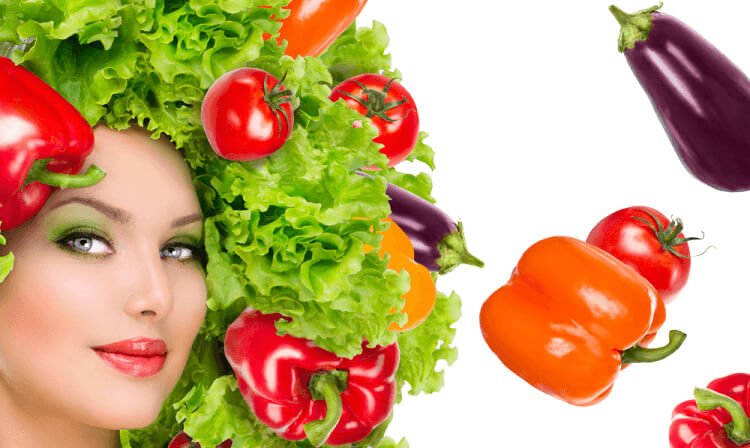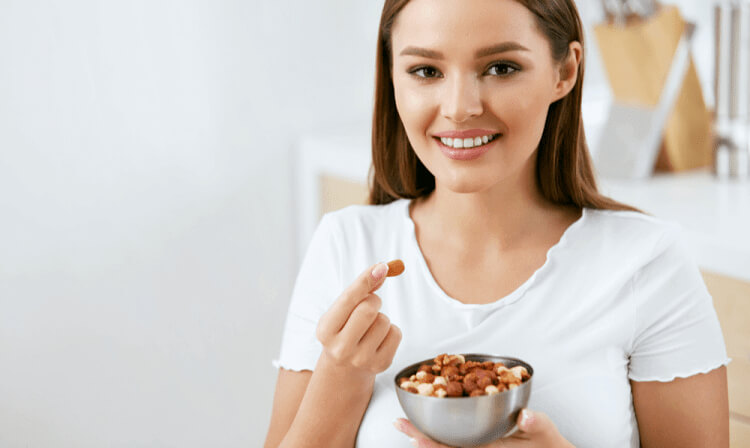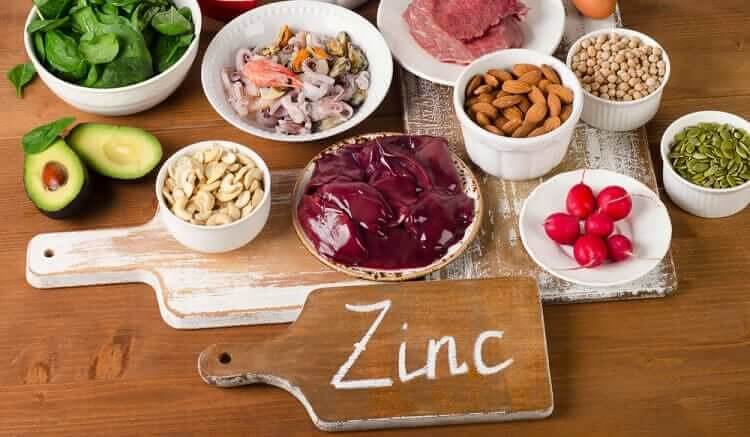What Exactly Impacts Our Hair?
When it comes to growing long, thick, envious hair, there is a whole host of contributing factors such as genetics, age and environment. However, one thing’s for sure, you most definitely are what you eat, and this applies to your hair too.
Fuel Your Body
First, our number one priority is in ensure we are eating enough. It goes without saying, if you’re not eating enough, you’re likely not getting the nutrients your body craves. If your body is lacking essential nutrients, your hair and nails will likely suffer. So, now it comes down to what you’re eating. Thankfully, we’re about to detail some of the most important vitamins and nutrients you should include in your diet in a bid for healthier hair.
Protein Is Your Best Friend
Hair is made from protein, so of course, our consumption plays a crucial role when it comes to the health of our hair. If you’re not eating enough protein, it may lead to dry and brittle hair, the kind of dilemma no one has time for!
The Iron Woman
Next up, you need to watch your iron intake. Very low blood iron levels can disrupt the supply of nutrients to our hair follicle, often leading to a change in the hair’s natural growth cycle. This kind of disruption might lead to shedding, which is why some might find they lose hair when their iron is low.
The B Family
B Vitamins are essential. The B’s are a huge family of vitamins, many of which are responsible for keeping your hair strong and stimulating growth in the follicles of our hair. If you’re in search of longer, shinier hair, it’s time to top up your intake of B Vitamins.
Zinc Is Not Just A Metal
Last but definitely not least, zinc also plays an important part in the health of our hair. If you suffer from a dry, flaky scalp, this might be down to lack of zinc in your diet.
Add These Items to Your Shopping List
Now, we’ve covered the basics when it comes to the vitamins and nutrients we need, but where exactly can we find them? Don’t worry, we’ve done the research, so you don’t have to. For protein, incorporate eggs, fatty fish and nuts into your diet. Beans, lentils, leafy vegetables and nuts are a great source of iron. In your search for vitamin B, shop for whole grains, meat, fruits and dark leafy vegetables. For zinc, meat, shellfish and whole grains are a great source.







